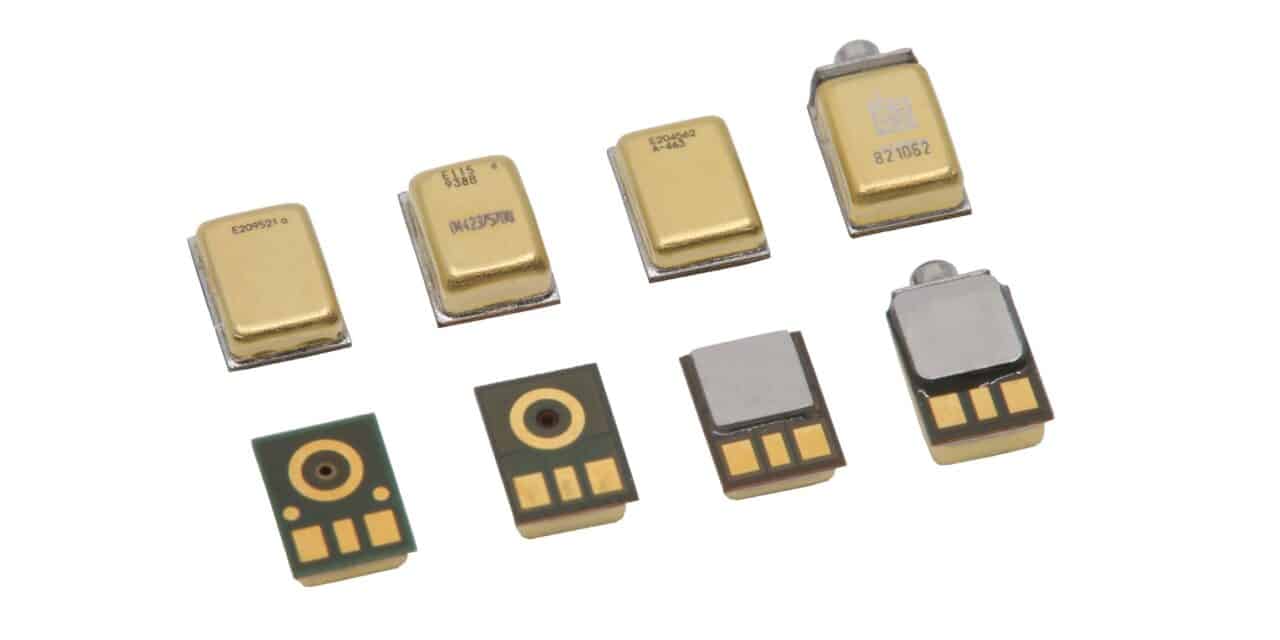Summary:
Knowles has launched the MM60 MEMS microphone at EUHA 2025, engineered with a new MEMS motor and advanced ASIC to optimize AI chipset performance in hearing aids through enhanced durability, programmability, and acoustic quality.
Key Takeaways:
- The MM60 is built with a new MEMS motor and advanced ASIC to deliver robust protection, high electroacoustic performance, and AI-optimized sound input.
- It reportedly offers exceptional durability—surviving deep-water immersion, high-pressure air blasts, and fine particle exposure—while reducing distortion and noise.
- Designed for next-generation AI-powered hearing aids, the MM60 is designed to enable consistent results, customization, and enhanced user experiences in diverse environments.
Knowles Corporation, a manufacturer of specialty electronic components—including high performance capacitors, radio frequency (“RF”) filters, advanced medtech microphones, and balanced armature (BA) speakers—announced the launch of its MM60 MEMS microphone at the European Hearing Aid Acousticians Convention (EUHA) in Nuremberg, Germany. For optimal performance of the AI chipset in a hearing aid, high-quality sound input is essential. According to Knowles, the MM60 is designed from the ground up to deliver superior electroacoustic performance and robustness specifically designed to maximize the performance for AI chipsets in hearing aid applications.
Dual Vectors of Innovation
The MM60 is built on two fundamental innovations: an entirely new MEMS motor and an advanced ASIC that the company says together enable hearing aid manufacturers to meet real-world user demands without compromise. As a pioneer of MEMS microphones in hearing aids, Knowles prides itself on striving to consistently deliver reliable, high-performance microphones at a fraction of the cost of electret microphones – continuing with the MM60, which is designed to provide performance specifically tailored to AI-powered hearing solutions.
The new MEMS motor is designed to be significantly more reliable than currently available microphones—particularly regarding liquid and particle ingress such as water, dust, or earwax—while simultaneously significantly enhancing electroacoustic performance. Knowles claims the MM60 survives 2-meter deep-water immersion, withstands air blasts exceeding 100 PSI, and protects against fine particles—reducing field return rates while enabling end users to maintain active lifestyles.
The advanced ASIC is made to offer superior programmability with dual-stage gain control, precision filters ranging from 25 Hz to 20 kHz, DC offset alignment, and power optimization—all factory-configured according to hearing aid manufacturer specifications. The goal is to enable more consistent results, reduce production variations, and empower hearing aid manufacturers to fully leverage their AI differentiation features with industry-leading microphones.
Transforming the User Experience
For users, Knowles attests the benefits are clear: lower noise levels, reduced distortion, improved ultrasonic performance, and microphones that sound better and last longer in any environment—from active gym training to loud cocktail parties. The MM60 and its thinner MM61 variant are available immediately and can be integrated into new hearing systems.
“The MM60 represents a pivotal advancement in hearing health technology,” says Jon Kiachian, president of MedTech and Specialty Audio at Knowles Corporation. “By combining our decades of MEMS microphone expertise with cutting-edge AI optimization, we’ve created a solution that doesn’t just meet today’s hearing aid requirements but also enables the next generation of intelligent hearing devices. This microphone sets a new standard for what’s possible when durability, performance, and AI-readiness converge in a single, breakthrough product.”
Performance for AI-Powered Solutions
According to Knowles, with its combination of robust protection, advanced programmability, and reliable acoustic performance, the MM60 establishes a new benchmark for hearing health technology. The microphone’s AI-centric design philosophy aims to deliver industry leading sound quality and enable AI chipsets to perform at their best while maintaining the reliability and performance standards that hearing aid manufacturers and users demand.
For technical specifications and integration support, visit https://www.knowles.com/subdepartment/hearing-health-microphones/hearing-health-microphones or contact your Knowles representative.
For more information, visit knowles.com.




